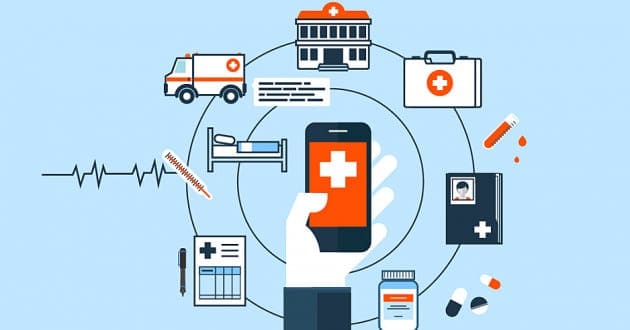By Tom Still
 MADISON, Wis. – Less than two days after Ascension Health announced it had struck a deal with Google to provide access to health data involving millions of Americans, federal investigators announced they will examine whether the partnership violates the Health Insurance Portability and Accountability Act – best known by its acronym, HIPAA.
MADISON, Wis. – Less than two days after Ascension Health announced it had struck a deal with Google to provide access to health data involving millions of Americans, federal investigators announced they will examine whether the partnership violates the Health Insurance Portability and Accountability Act – best known by its acronym, HIPAA.
It’s a probe that may help to answer the question – who owns health data? – while shedding light on how information contained in health records can safely and anonymously be unlocked to improve human health.
Ascension, which is a national healthcare system with a sizable footprint in Wisconsin, joined Google in declaring that “Project Nightingale” is all about improving care for patients. Experts agree that analyzing the massive amounts of data captured in electronic medical records will dramatically improve diagnosis of diseases and chronic conditions, the study of epidemics and more.
The rub is protecting the privacy of patients, an underlying goal of HIPAA, while providing a rich trove of data that can be used by researchers and others to crack the code on a host of human health riddles. It’s a dilemma that surfaced in three recent meetings organized by the Wisconsin Technology Council and the Wisconsin Healthcare Business Forum.
Who owns health data? Legally, there are different interpretations. Because the data is collected through proprietary electronic data systems, one prevailing view is that hospitals, data companies, health systems, “payors” such as insurance companies and even doctors own it.
Others maintain it is the patients who own such data – or, at least, should control it – because the data is all about their own health conditions. They deserve the right to be asked if they want that information to be available in a clean, unidentifiable way for research purposes. Some have argued they should also be compensated.
“The question of data ownership can be a perverse system,” said one medical technologist who took part in a Nov. 18 focus group discussion at GE Healthcare in Wauwatosa. “For some companies, ownership of data is the entire business model. The public policy goal … should be preventing (health) data from being used as a currency, which would help to unlock to ‘greenspace’ layer of data.”
That “greenspace” layer refers to the kind of information that can be used by researchers to explore all sorts of health questions. It may not help the patients whose data is mined, but it would likely help others in the future.
In fact, one research manager who works to transfer new technologies from the lab bench to patient care predicted there would be a “10x to 100x increase” in the quality of health diagnoses if data was more available to young companies and others working on solutions.
Others in the small-group discussion noted that some countries – Finland, Denmark and France were cited – are developing better ways to use data without compromising patient privacy.
Speaking Nov. 19 in Madison, the director of Microsoft’s Jim Gray Systems Lab said one of the emerging interests of the research center is “tackling healthcare data problems.” Lab director Alan Halvorson said that means “standardized, secure data exchange between medical records platforms and its clients – you and me!”
At the Wisconsin Early Stage Symposium in Madison Nov. 6, a panel of healthcare experts talked about the continuing process of “disruption” in healthcare as providers, payors, researchers and young companies try to shake up what one participant called an “ultra-conservative” culture.
The goal of such innovation should be to improve quality of care, hold the line on costs and improve the patient experience. The best solutions should do all three – and solid data can help determine if all boxes are being checked.
Determining how best to mine health data about patients, without exploiting or exposing them, isn’t a simple task. It has complex technical, legal and social implications. Fortunately, more people are talking about ways to turn a possibly “perverse” system into a productive one.
Still is president of the Wisconsin Technology Council, which is part of the Wisconsin Healthcare Business Forum. He can be reached at tstill@wisconsintechnologycouncil.com.
###


